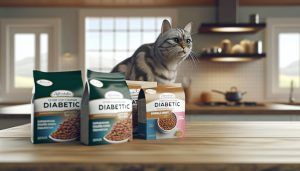Did you know that many gas station options for caffeine can be compatible with diabetes management? For those navigating daily energy needs, understanding which caffeinated beverages are safe and suitable is vital. This guide explores the best caffeine choices available at gas stations, ensuring you can enjoy that much-needed boost while keeping your blood sugar levels in check. Whether you’re on the road or simply need a quick pick-me-up, this information empowers you to make informed decisions, supporting your health without sacrificing energy. Discover delicious, diabetic-friendly caffeine options that fit seamlessly into your lifestyle and help you thrive while managing your condition. Keep reading to find the ideal choices that align with your health goals!
Best Low-Sugar Energy Drinks at Gas Stations for Diabetics
Many people with diabetes are on the lookout for ways to maintain energy without spiking their blood sugar levels. Fortunately, gas stations often offer a variety of low-sugar energy drinks that can provide the boost needed for daily activities without the unwanted sugar crash. When choosing an energy drink, it’s essential to focus on those specifically formulated for health-conscious consumers. Look for drinks that contain less than 5 grams of sugar per serving and are free from high fructose corn syrup and artificial sweeteners.
Here are some popular options that are frequently found at gas stations and are diabetic-friendly:
- Monster Energy Zero Ultra: This drink is a zero-calorie option with a light, refreshing flavor and contains added vitamins.
- Red Bull Sugar-Free: A classic choice that provides energy without sugar, beneficial for maintaining stable blood sugar levels.
- Bang Energy: Low in sugar and calories, Bang contains BCAAs (branched-chain amino acids) which can help with muscle recovery and energy.
- Reign Total Body Fuel: This drink is known for its electrolytes and essential amino acids, making it a great pick for hydration and energy.
Beyond sugar content, it’s crucial to consider the caffeine levels. Most low-sugar energy drinks contain caffeine, which can be beneficial in moderation, but it’s always wise to stay within recommended limits. To ensure a responsible approach to caffeine consumption, always read labels carefully, noting both sugar and caffeine content. Remember, individual reactions to caffeine can vary, so monitoring your body’s response can aid in finding the right balance.
Choosing the right beverage doesn’t just enhance your energy levels; it’s a step towards effective diabetes management. Always consult healthcare professionals when making significant changes to your diet or energy-intake habits. By making informed choices at gas stations, you can savor the boost you need while keeping your health a priority.
How to Choose Caffeine Options That Manage Blood Sugar Levels

To effectively choose caffeine options that support blood sugar management, it’s important to consider the interplay between caffeine, sugar, and overall dietary impact. Many energy drinks can be appealing for a quick energy boost, but for those managing diabetes, selecting the right products can make a significant difference. Start by looking for drinks specifically labeled as low-sugar or sugar-free. Ideally, these should contain less than 5 grams of sugar per serving, avoiding high fructose corn syrup and artificial sweeteners that can cause unpredictable blood sugar spikes.
When browsing caffeine products at gas stations, pay attention not just to sugar content but also to caffeine levels. Moderate caffeine intake can actually benefit metabolism and energy levels, but individuals may react differently. For example, options like Monster Energy Zero Ultra and Red Bull Sugar-Free offer energy without sugar, allowing for better blood sugar control. Always read the nutrition label to check both sugar and caffeine contents.
Moreover, it’s helpful to understand the role of other ingredients in these beverages. Look for drinks with added benefits, like those that include vitamins or electrolytes. Your body may respond differently to caffeine based on factors like activity level, medication, and individual health conditions, so keeping a diary of your consumption and its effects on your blood sugar can be valuable. Consulting with healthcare professionals for personalized advice will empower you to make choices that align with your health goals and lifestyle.
As you make selections, keep in mind the importance of pairing these drinks with a balanced diet and exercise routine. This holistic approach can help maintain energy without causing significant blood sugar fluctuations, ensuring that caffeine consumption becomes a part of a complete strategy for diabetes management.
Key Ingredients to Look For in Diabetic-Friendly Caffeine Products
When searching for caffeine products suitable for managing diabetes, it’s crucial to pay attention to specific ingredients that can support your health goals. Many energy drinks on gas station shelves may seem appealing for a quick energy boost, but the right choice can make all the difference. Prioritize options that are low in sugar, ideally containing less than 5 grams per serving, as this helps prevent unwanted spikes in blood sugar levels.
Look for the following key ingredients when choosing diabetic-friendly caffeine products:
- Natural Caffeine Sources: Opt for products that use natural sources of caffeine, such as guarana or green tea extract. These ingredients can provide a smoother energy boost and may have additional health benefits.
- Added Electrolytes: Electrolytes like potassium and magnesium can be beneficial for overall hydration and energy levels, especially if you’re active. Hydration can play a crucial role in maintaining stable blood sugar levels.
- Vitamins and Antioxidants: Some energy drinks are fortified with vitamins such as B vitamins (B6 and B12), which can help with energy metabolism, and antioxidants that may support overall cellular health.
- Zero or Low-Calorie Sweeteners: If any sweeteners are used, look for those labeled as zero-calorie, such as stevia or erythritol, which are less likely to impact blood sugar compared to traditional sugars or artificial sweeteners like aspartame.
In addition to ingredients, it’s also essential to understand how different products might interact with your health condition. Each individual reacts differently to caffeine based on personal health factors, including any medications you may be taking. Keeping a log of your caffeine intake and its effects on your blood sugar can provide valuable insight.
Before making any changes to your caffeine consumption, consulting with healthcare professionals can ensure your choices align with your unique health circumstances. With mindful selection and educational insight, navigating the world of caffeinated products at gas stations can be empowering, opening doors to safe, enjoyable energy-boosting options that fit seamlessly into your diabetic management plan.
Top Gas Station Brands for Safe Caffeine Consumption

When you’re on the road and need a boost, it can be tricky to find energy products at gas stations that align with your diabetic management plan. Thankfully, there are several brands that cater to health-conscious consumers, offering options that are lower in sugar and designed for energy without blood sugar spikes. Below are some brands worth considering for their diabetic-friendly options.
Top Brands for Safe Caffeine Consumption
- Reign Total Body Fuel: This brand is known for its performance energy drinks, which contain zero sugar and are fortified with electrolytes. They use natural caffeine sources and are enriched with BCAAs for an extra boost during your day.
- Celsius Energy: Celsius offers a range of energy drinks that are free from artificial preservatives, sweeteners, and sugars. They are powered by thermogenic ingredients like ginger and guarana, providing a natural energy lift while helping manage appetite.
- Sparkling Ice: For a refreshing carbonated option, Sparkling Ice has various flavors of sparkling water that contain zero sugar and added vitamins, making it a tasty alternative to traditional energy drinks.
- Bai Antioxidant Drinks: Bai drinks have low sugar content and are sweetened with erythritol, a zero-calorie sweetener. They provide antioxidants and come in a variety of flavors, making hydration both enjoyable and healthy.
Each of these brands prioritizes health-conscious ingredients, making them suitable choices for those managing diabetes. Always remember to check the labels for specific nutritional info to ensure they align with your dietary needs. Staying mindful of caffeine intake is essential, so monitor how different products affect your blood sugar levels and consult healthcare professionals when in doubt. With the right knowledge and options, you can enjoy energy-boosting drinks that support your health journey while navigating the aisles of your local gas station.
Caffeine Alternatives: Natural Energy Boosters for Diabetics

Natural energy boosters can be a fantastic way for those managing diabetes to avoid the blood sugar spikes associated with conventional caffeine sources. These alternatives not only provide a sustainable energy lift but often come with added health benefits, making them ideal for anyone looking to enhance their vitality while keeping their blood sugar in check.
Herbal teas, such as green tea and yerba mate, serve as excellent substitutes. Green tea contains natural antioxidants and provides a gentler caffeine dose, which can help improve focus and metabolism without causing dramatic fluctuations in blood sugar levels. Yerba mate, another popular choice, is packed with antioxidants and is known for its smooth energy boost, making it a favorite for those seeking a balanced alternative. Incorporating these into your daily routine can provide a soothing ritual that supplies both hydration and vitality.
Additionally, consider energy-boosting snacks that include nuts and seeds. These are rich in healthy fats, protein, and fiber, which contribute to stable blood sugar levels while offering a natural energy source. For example, a handful of almonds or a mix of pumpkin and sunflower seeds can make for a satisfying, energy-boosting snack. Pairing these with a small serving of fruit can amplify the energy effect without soaring blood sugar levels, as the fiber helps slow down sugar absorption.
Another great alternative is to explore low-sugar smoothies made with leafy greens, unsweetened almond milk, and a scoop of protein powder. These can provide sustained energy while delivering vital nutrients. Adding ingredients like spinach or kale not only boosts the nutritional profile but also keeps sugar content in check, promoting a healthier energy lift. For safe consumption, always opt for whole, minimally processed components to create your blends, ensuring they’re both enjoyable and diabetic-friendly.
Incorporating these natural alternatives into your diet can empower you to maintain optimal energy levels while adhering to your diabetes management plan. As every individual reacts differently to dietary changes, it’s important to monitor your blood sugar frequently and consult with healthcare professionals to create a plan tailored to your unique needs.
Understanding Caffeine Effects on Diabetes Management

Understanding the impact of caffeine on diabetes management is crucial for anyone living with the condition. Caffeine can influence blood sugar levels, sometimes in unpredictable ways. For many, caffeine provides a welcome boost in energy and alertness, yet it can also prompt the body to release glucose into the bloodstream, potentially leading to elevated blood sugar levels. This effect varies significantly from person to person, making it essential for diabetics to monitor their responses to caffeinated beverages closely.
To navigate caffeine consumption effectively, consider opting for drinks with lower sugar content commonly found at gas stations, such as black coffee or unsweetened iced teas. These choices typically offer the caffeine boost without the added sugars that can spike blood sugar levels. Additionally, pairing caffeinated drinks with a snack high in protein and healthy fats-such as nuts or seeds-can mitigate the sugar impact and promote stable energy levels throughout the day.
It’s also important to be discerning about portions. Consuming large quantities of caffeine can lead to jitteriness and increased heart rate, which may complicate diabetes management. Strive to stick to moderate amounts-generally around 200 to 400 mg of caffeine per day-depending on individual tolerance levels. Some may even benefit from tracking their caffeine intake alongside blood sugar readings to identify patterns or adverse effects.
Incorporating caffeine into a balanced diet requires being mindful about timing as well. Consuming caffeine during meals or snacks that include carbohydrates can influence how your blood sugar levels respond. For those using insulin or other medications to manage diabetes, consulting with healthcare providers about your caffeine habits can help align treatment plans and dietary choices effectively, ensuring a comprehensive approach to managing diabetes.
Reading Labels: What Diabetics Need to Know
When navigating the diverse options of caffeinated beverages available at gas stations, understanding how to read labels is crucial for diabetics. Many drinks may appear tempting with bold branding and enticing flavors, but a closer look at the ingredients and nutritional information can reveal hidden dangers, particularly in terms of sugar content and other additives that can impact blood sugar levels.
Start by checking the nutrition facts panel, focusing particularly on the total carbohydrates and sugars listed. It’s essential to look for drinks that contain no added sugars or are labeled sugar-free. Terms like “sucrose,” “high fructose corn syrup,” and even “natural sweeteners” can signal hidden sugars that could trigger a spike in your blood glucose. Remember, beverages labeled as “diet” or “zero” may still contain sugar alcohols or other sweeteners that can affect blood sugar, so proceed with caution.
Moreover, don’t overlook the ingredient list. Ingredients are listed in descending order, from the largest quantity to the smallest. If sugar or sweeteners appear near the top of this list, the beverage may be more sugary than you want. Look also for artificial ingredients, preservatives, or stimulants that could potentially affect your metabolism. Since awareness is critical, stock up on items that contain natural ingredients, such as herbal extracts or whole food-derived caffeine sources like yerba maté or matcha, which can provide energy without excessive sugars.
Understanding caffeine content is also vital. While most energy drinks contain caffeine, the actual amount can vary significantly. Aim for options with moderate caffeine levels-typically under 200 mg per serving-especially if you intend to consume them alongside food or other caffeinated beverages.
As always, consider discussing your beverage choices with a healthcare professional, particularly if you notice significant fluctuations in your blood sugar after consuming these products. This approach ensures that you are making informed decisions that align with your health goals and diabetes management. Being informed empowers you to choose your caffeine safely, allowing you to enjoy the energy boost without jeopardizing your health.
Tips for Enjoying Caffeine While Maintaining Diabetic Health
To navigate caffeine consumption successfully while managing diabetes, it’s essential to adopt mindful drinking habits that align with your health needs. Many diabetics can enjoy caffeine, but it’s crucial to choose options that won’t interfere with blood sugar levels or medications. For instance, consider the types of caffeinated beverages available at gas stations, opting for those that are low in sugar and rich in natural ingredients.
Start by selecting beverages labeled as “sugar-free” or “zero sugar.” These options often contain fewer carbohydrates that could spike blood glucose. When examining the nutrition label, look specifically for the total carbohydrate content, focusing on those below 5 grams per serving. Additionally, pay attention to the ingredient list for items like natural herbal extracts (such as ginseng or green tea) that can provide an energy boost without a high sugar content.
Smart Pairing Strategies
Pairing your caffeine with a balanced meal or snack can also help mitigate blood sugar swings. Incorporate protein-rich foods or healthy fats; these not only provide sustained energy but also promote better blood sugar stability. For example, grabbing a low-sugar energy drink with a handful of nuts or a hard-boiled egg can enhance your overall energy while minimizing any potential glycemic impact.
Listening to Your Body
It’s essential to pay close attention to how your body responds to caffeine. Everyone’s reaction can be different, so keep a journal of your caffeine intake alongside your blood sugar readings. If you notice fluctuations after consuming certain drinks, it may be beneficial to limit those options or consult with a healthcare professional for personalized advice. This self-awareness can empower you to make informed decisions about your caffeine consumption.
By being proactive and informed about the caffeine choices you make, you can enjoy an occasional energy boost while managing your diabetes effectively. Always remember that discussing your dietary choices with your healthcare team is essential, ensuring that your habits align with your overall health goals.
Impact of Caffeine on Diabetes Medication: What to Consider
Caffeine can be a double-edged sword for those managing diabetes, particularly when it comes to its interaction with diabetes medications. The way caffeine affects your body can vary significantly from one person to the next, and understanding these effects is crucial for maintaining optimal blood sugar levels and overall health. Studies suggest that caffeine can influence blood glucose levels, potentially leading to insulin resistance in some individuals, which may complicate diabetes management.
It’s essential to consider the timing and quantity of caffeine consumption in relation to your medications. For instance, caffeine has been shown to increase the metabolic rate, which could alter the effectiveness of certain diabetes medications. Medications like insulin or metformin may have different outcomes when taken alongside caffeinated products. Therefore, it’s vital to monitor how your body responds when you consume caffeine around the time of taking your medication. Keeping a detailed log can help in identifying patterns that could affect your treatment plan.
Collaboration with Healthcare Professionals
Always consult with your healthcare provider when integrating caffeine into your diet, particularly if you’re on medication. They can provide personalized recommendations based on your unique health profile. Perhaps they will suggest gradually adding caffeine to your routine, monitoring for any changes in your blood sugar levels or your medication’s effectiveness. This dialogue with your healthcare provider forms a robust foundation for managing your diabetes effectively while enjoying a moderate caffeine intake.
Practical Tips for Safe Caffeine Consumption
- Timing is Key: Consider spacing out caffeine intake from your medications to minimize potential interactions.
- Start Small: If you’re new to caffeine or returning after a break, start with small amounts to gauge your body’s reaction.
- Monitor Your Levels: Regularly check your blood sugar before and after caffeine consumption to better understand how it affects you personally.
- Stay Informed: Research different caffeinated products available at gas stations and choose those that align with your dietary goals.
By being mindful of how caffeine interacts with your diabetes management plan, you can make informed choices that support both your energy needs and overall health. Engaging openly with your healthcare team will help ensure that you navigate these choices safely, allowing you to enjoy the occasional energy boost while effectively managing your diabetes.
Real-Life Stories: Diabetics Share Their Safe Caffeine Picks
Navigating the world of caffeine as a diabetic can feel overwhelming, but many individuals have successfully found their own safe picks while on-the-go. For instance, Sarah, a type 2 diabetic, shared that when she stops at gas stations, she usually opts for unsweetened iced tea or sparkling water infused with natural flavors. “I love the refreshing taste without the sugar. Plus, I can easily manage my blood sugar levels without worrying about hidden carbs,” she explains, highlighting the importance of transparency in product ingredients.
Another inspiring example comes from Tom, who relies on low-sugar energy drinks like Zevia. “I appreciate that it uses stevia as a sweetener, which doesn’t cause spikes in my blood glucose. When I need a boost during long drives, I grab one from the convenience store, and I feel great afterward,” he says. His success with these alternatives underscores the value of reading labels carefully and choosing products that align with diabetes management goals.
For those who enjoy coffee, Jenna recommends opting for black coffee or coffee with low-fat milk. “When I’m on a road trip, I check for deli-style gas stations that brew fresh coffee. Not only does it give me the caffeine I need, but it’s a low-calorie option as well,” she shares. Jenna stresses the importance of adjusting portion sizes and maintaining hydration to keep blood sugar levels stable throughout the day.
With these real-life stories, it becomes evident that making mindful choices at gas stations is entirely achievable. Emphasizing a combination of awareness, preparation, and product knowledge empowers diabetics to maintain their health while enjoying the occasional caffeine boost. By sharing experiences, individuals can inspire and support one another on their diabetes journey, reminding everyone that they are not alone in this journey.
How to Incorporate Caffeine into a Balanced Diet for Diabetes
Incorporating caffeine into a balanced diet for diabetes can be both rewarding and manageable when done thoughtfully. Caffeine can provide the energy boost many individuals seek, especially during busy days or long drives. However, understanding how to navigate your caffeine choices is crucial for maintaining stable blood sugar levels. For example, opting for beverages with low or no added sugars can help prevent spikes in blood glucose, making choices like black coffee or unsweetened iced tea popular options.
Another essential consideration is the timing of caffeine consumption. Consuming caffeine earlier in the day can improve alertness without disrupting evening routines or sleep patterns, which is vital for overall health management. When at gas stations, look for products that highlight their carbohydrate content on labels. Focusing on drinks that are explicitly low in sugar can aid in making informed choices. For instance, energy drinks sweetened with natural alternatives like stevia can be better options since they do not significantly impact blood glucose levels.
Hydration also plays an essential role in this balance. Combining caffeine-rich choices with plenty of water throughout the day can help ensure that blood sugar levels remain stable. Being aware of portion sizes is equally important; larger servings can contain more calories and carbohydrates, which can complicate diabetes management. Therefore, moderation is key when enjoying caffeine, especially from convenient sources like gas stations.
As you incorporate caffeine into your diet, it’s beneficial to keep a food diary or use mobile apps to track how different products affect your blood sugar. Sharing your experiences with others-whether they are family, friends, or online communities-can also provide additional tips and support, turning the caffeine journey into an empowering part of your diabetes management strategy. Always remember that consulting healthcare professionals regarding dietary choices and medication interactions is critical for creating a plan that works best for you.
When to Avoid Caffeine: Red Flags for Diabetic Health
Caffeine can be a double-edged sword for those managing diabetes. While it can offer a much-needed energy boost, there are specific circumstances when it may be best to steer clear of caffeinated products. Understanding these red flags can empower individuals with diabetes to make informed decisions that prioritize their health.
One significant concern involves the context of blood sugar levels. If your blood glucose is unregulated or has recently spiked or dropped, caffeine might exacerbate these fluctuations. It’s essential to monitor your blood sugar carefully and avoid caffeine when levels are unstable. Additionally, consuming high-caffeine drinks can lead to dehydration, a factor that can be particularly detrimental for those with diabetes, as dehydration may further elevate blood sugar levels. If you’ve been sweating profusely, feel parched, or have not consumed sufficient water, it’s better to opt for hydration first before choosing a caffeinated product.
Furthermore, individuals who experience anxiety or palpitations should reconsider their caffeine intake. Caffeine can heighten these symptoms, leading to discomfort and stress, which can negatively impact overall diabetes management. Moreover, some diabetes medications may interact unfavorably with caffeine, leading to side effects such as increased heart rate or other complications. Always consult your healthcare provider when considering caffeine in conjunction with medications.
Lastly, be cautious with energy drinks and heavily sweetened beverages often found at gas stations. Many of these drinks contain high levels of sugar and artificial ingredients, nullifying the benefits of caffeine by causing blood sugar spikes. If you notice that caffeine disrupts your sleep or leads to jitteriness, these are also signs to avoid or limit caffeine consumption. Ultimately, being mindful and attentive to your body’s signals is crucial in making the best choices for maintaining your diabetic health.
Frequently asked questions
Q: What types of caffeine drinks are safest for diabetics?
A: The safest caffeine drinks for diabetics include those that are low in sugar and contain natural ingredients. Look for unsweetened iced teas, black coffee, or sugar-free energy drinks that use stevia or erythritol as sweeteners. Always check labels for any hidden sugars.
Q: How does caffeine affect blood sugar levels in diabetics?
A: Caffeine can affect blood sugar levels by increasing insulin resistance, possibly causing higher levels of glucose in the bloodstream. Diabetics should monitor their blood sugar closely when consuming caffeine and consult with healthcare professionals about their caffeine intake.
Q: Are sugar-free energy drinks suitable for diabetics?
A: Sugar-free energy drinks can be suitable for diabetics, provided they do not contain high levels of artificial sweeteners. Ingredients like ginseng, B vitamins, and electrolytes can be beneficial. Always read labels for any hidden sugars and potential side effects.
Q: When should diabetics avoid caffeine?
A: Diabetics should consider avoiding caffeine during times of high blood sugar, stress, or when feeling jittery. It’s also wise to avoid caffeine close to bedtime, as it can disrupt sleep patterns, which can indirectly impact blood sugar management.
Q: What are some caffeine alternatives for diabetics?
A: Good caffeine alternatives for diabetics include herbal teas, matcha, and decaffeinated beverages. Additionally, natural energy boosters like ginseng, guarana, or aerobic exercise can provide energy without the spikes associated with caffeine.
Q: How can I read caffeine product labels to determine if they are diabetic-friendly?
A: To read caffeine product labels effectively, focus on total carbohydrates, sugar content, and ingredient lists. Look for products that are low in carbs, free from added sugars, and contain beneficial ingredients, as advised in the “Reading Labels: What Diabetics Need to Know” section of our article.
Q: Is it safe to mix caffeine with diabetic medication?
A: Mixing caffeine with diabetic medication can be safe, but it’s essential to consult your healthcare provider first. Some medications may react with caffeine, impacting its effectiveness or increasing side effects.
Q: What can I do if I experience side effects from caffeine?
A: If you experience side effects from caffeine such as jitteriness or elevated blood sugar levels, reduce your intake gradually. Consider switching to decaffeinated options and carry hydration to help ease discomfort while discussing any concerns with your healthcare professional.
To Conclude
As you’ve discovered in our guide to the best caffeine options at gas stations for diabetics, making informed choices can empower you to maintain your energy levels while keeping your blood sugar in check. Remember, the right caffeine source not only boosts alertness but also aligns with your health goals. Don’t hesitate-explore these safe caffeine options and give your daily routine the pick-me-up it deserves!
If you’re seeking more insights, check out our articles on healthy snack choices and diabetes-friendly drinks to further support your journey. Have questions or experiences to share? We invite you to engage in the comments below or connect with our community by signing up for our newsletter, where we share tips and product recommendations tailored for your lifestyle. Take charge of your health, and let’s navigate this journey together!











